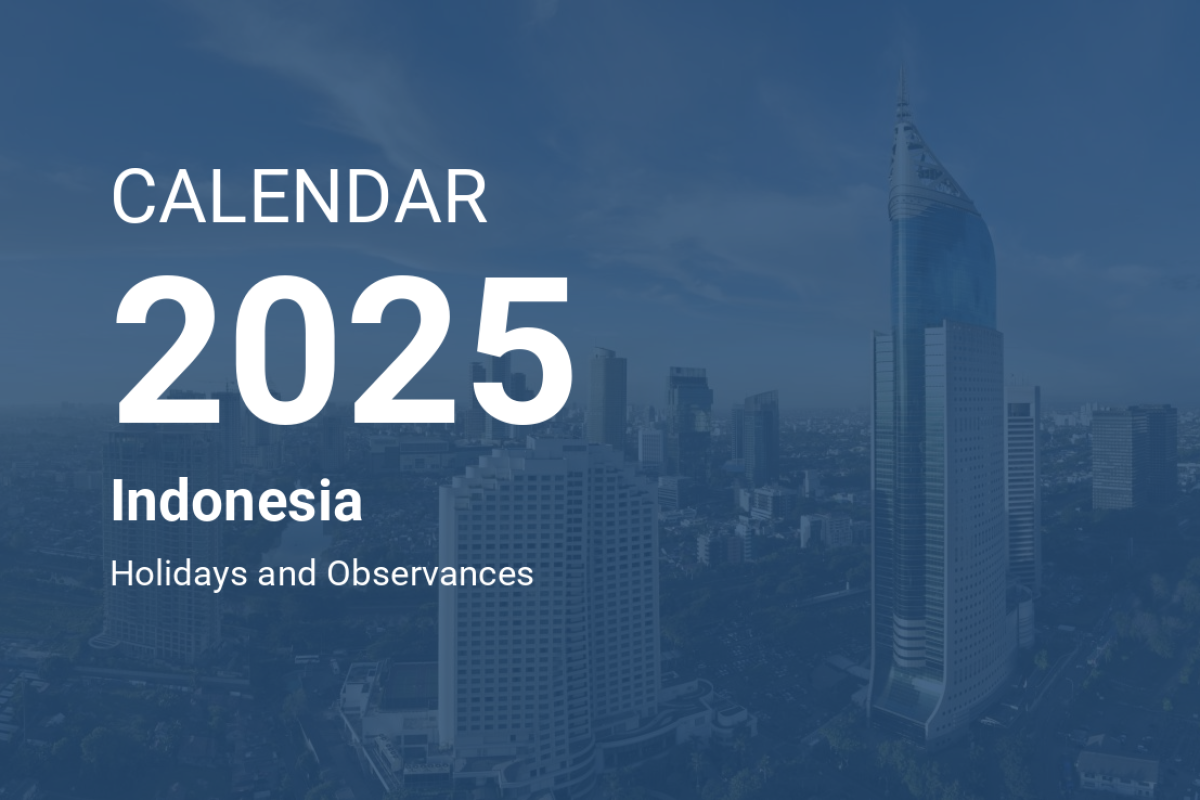Expanding into Indonesia offers significant business opportunities. However, understanding the country’s public holiday schedule is essential for compliance, productivity, and respecting cultural norms. Indonesia’s public holidays are deeply rooted in religious observances, historical events, and cultural traditions. Recognizing these holidays will help businesses plan efficiently and ensure smooth operations.
Key Public Holidays in Indonesia for 2025
Indonesia’s public holidays in 2025 include national celebrations, religious observances, and important cultural events. Below is an overview of the official public holidays:
| Date | Holiday | Description |
|---|---|---|
| January 1 | New Year’s Day | Marks the start of the Gregorian calendar year with celebrations across the country. |
| February 19 | Chinese New Year (Imlek) | Celebrated by the Chinese-Indonesian community with family gatherings, feasts, and festivities. |
| March 21 | Nyepi Day (Balinese Day of Silence) | A Hindu observance in Bali marking the start of the Balinese New Year, characterized by silence, fasting, and meditation. |
| April 6 | Good Friday | A Christian religious holiday commemorating the crucifixion of Jesus Christ. |
| April 25 | Ascension of Jesus Christ | A Christian holiday celebrating the ascension of Jesus to heaven. |
| May 1 | International Labor Day | A global celebration of workers’ rights, marked by parades, speeches, and community events. |
| May 19 | Idul Fitri (Hari Raya Puasa) | Celebrates the end of Ramadan, marked by family gatherings, feasts, and religious prayers. |
| June 19 | Idul Fitri (Hari Raya Puasa) | A continuation of the Idul Fitri celebrations for the second day. |
| August 17 | Independence Day | Commemorates Indonesia’s independence from Dutch colonial rule, celebrated with flag-raising ceremonies and national pride. |
| October 6 | Muharram (Islamic New Year) | Marks the beginning of the Islamic lunar calendar year. |
| December 25 | Christmas Day | A Christian holiday celebrating the birth of Jesus Christ, observed with religious services and family gatherings. |
| December 26 | Boxing Day | Observed primarily in Christian communities, often with family gatherings and sales events. |
Additional Regional and Cultural Observances in Indonesia
In addition to national holidays, Indonesia observes several important cultural and regional events that influence work schedules and may affect employee availability.
| Date | Observance | Description |
|---|---|---|
| February 1 | Chinese New Year (Tahun Baru Imlek) | Celebrated primarily by the Chinese-Indonesian community, with festivities and cultural events. |
| April 9 | Good Friday (Hari Jumat Agung) | Observed by Christians with church services and commemorations. |
| August 19 | Idul Fitri (Hari Raya Puasa) | A major Islamic holiday marked by feasts, prayer, and family gatherings. |
| November 6 | Maulid Nabi Muhammad | Celebrates the birthday of Prophet Muhammad with religious observances and gatherings. |
| December 10 | Ashura | An Islamic holiday commemorating the martyrdom of Prophet Muhammad’s grandson, Husayn ibn Ali. |
Employer Considerations for Managing Public Holidays in Indonesia
Understanding the differences between national holidays and cultural observances is crucial for smooth operations, employee morale, and workforce planning.
National vs. Cultural Observances
While cultural observances may not be official holidays, they play an important role in Indonesia’s social and cultural life. Recognizing these observances can enhance workplace relationships and improve employee satisfaction.
Managing Public Holidays with EOR/PEO Services
For international employers expanding into Indonesia, partnering with an Employer of Record (EOR) or Professional Employer Organization (PEO) can simplify holiday management by:
- Ensuring Compliance: EOR/PEO services ensure compliance with Indonesian labor laws, including holiday pay, leave entitlements, and contractual obligations.
- Payroll Adjustments: Holiday overtime, premium pay for holiday work, and substitute leave are handled efficiently with EOR/PEO support.
- Efficient Leave Tracking: An EOR/PEO helps track holiday leave, manage leave requests, and adjust schedules seamlessly.
Holiday Pay and Compliance in Indonesia
Indonesian labor law mandates that employees receive paid leave on official public holidays. If employees work on a public holiday, they are typically entitled to premium pay, which can be at double or special rates, as outlined in the employment contract.
- Paid Leave: Employees are generally entitled to paid leave on official public holidays.
- Substitute Holidays: If a public holiday falls on a weekend, companies may offer a substitute day off to employees, although this depends on the terms outlined in the employment contract.
Productivity and Holiday Planning Tips
To maintain business continuity during holiday seasons, businesses can consider the following strategies:
- Advance Communication: Share holiday schedules with employees in advance to ensure smooth leave planning and workload management.
- Flexible Work Arrangements: Offering remote work options or flexible hours can support productivity during holiday periods.
- Project Scheduling: Adjust project timelines around public holidays to ensure that key deadlines are met without disruptions.
Final Thoughts
Indonesia’s public holiday calendar for 2025 offers insights into the country’s rich cultural, religious, and historical heritage. Understanding these holidays allows global employers to plan effectively and ensure smooth operations throughout the year. Recognizing both official holidays and cultural observances fosters an inclusive workplace, enhances employee engagement, and supports local business practices.
GlobainePEO – Your Trusted Partner
At GlobainePEO, we help employers navigate the complexities of managing public holidays and employee leave in Indonesia. From compliance with labor laws to streamlined holiday management, we support your business in thriving while respecting local customs. Let us manage your workforce, so you can focus on growth.

